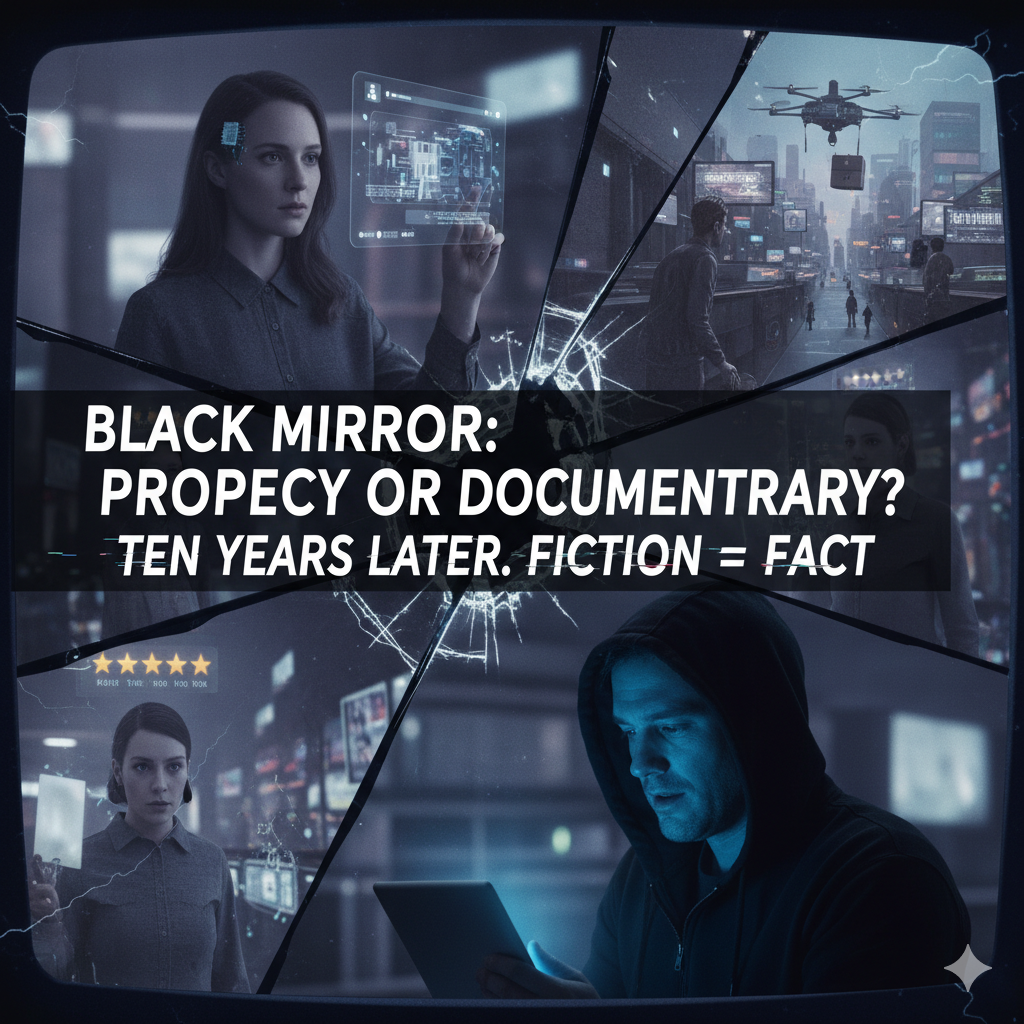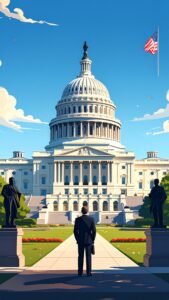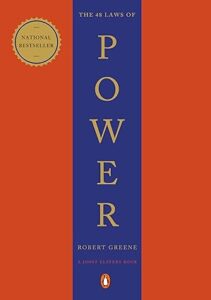Are We Already Living in a Black Mirror Episode?
Introduction
When Black Mirror first premiered, it wasn’t just television , it was prophecy. A mirror held up to society, only darker, sharper, and chillingly plausible. Today, nearly a decade later, the lines between fiction and reality are less blurred and more obliterated. Many of the show’s most dystopian storylines are no longer warnings. They’re happening , quietly, seductively, and in some cases, unapologetically.
This isn’t just a cultural moment. It’s a tech revolution with a script that feels eerily familiar.
Act I: The Rise of AI Influencers : Life Imitating Fifteen Million Merits Episode
Remember the episode where human life revolved around screens and manufactured idols? Welcome to 2025, where digital personalities aren’t just filters , they’re full-blown celebrities. AI-generated influencers like Lil Miquela blurred the first line between organic fame and engineered stardom. Now, next-gen avatars run brand deals, give interviews, and command loyal fanbases.
What began as a novelty is rapidly becoming the norm. Studios and corporations are favoring synthetic influencers over human talent: no scandals, no scheduling issues, no pay negotiations. These AI personalities are carefully tuned to match cultural trends in real time , optimized for engagement and influence.
Black Mirror parallel: In “Fifteen Million Merits,” episode a talent show offers the illusion of fame in a world mediated entirely by screens. We’ve traded singing contests for algorithmic virality, but the system is the same: we’re feeding machines that know exactly what we crave.
Act II: VR Escapism : The New Digital Refuge
In the episode Playtest, a young man enters a VR experience so immersive it becomes indistinguishable from reality. It was horror then. It’s just another Tuesday now.

Virtual reality has matured from clunky experiments to fully immersive social ecosystems. Entire communities live online through VR chat worlds and metaverse platforms. Some users are logging 10, 12, even 14 hours a day. We’ve gone beyond escapism , we’ve entered an era where the virtual world is often preferred to the real one.
What’s more, VR isn’t just about games. It’s about identity. People build better versions of themselves — prettier, stronger, freer , and step into lives that feel more authentic than their physical existence.
Black Mirror parallel: Episodes like “Striking Vipers” and “Playtest” explored how immersive technology disrupts reality, intimacy, and identity. Today, we don’t need speculative fiction to see that happening — just open any VR social hub at 2 AM.
Act III: Social Credit Systems : Nosedive Becomes a Manual
When “Nosedive” aired, its pastel horror of rating every human interaction felt far-fetched , like a dark satire of Instagram culture. But in 2025, elements of it are real.
Some countries are experimenting with social credit frameworks tied to financial services, travel privileges, and even dating platforms. Meanwhile, our digital footprints , likes, purchases, follower counts , already shape our access to jobs, apartments, and opportunities. Companies don’t need to rate you directly when the algorithm does it for them.
Even more unsettling: private credit rating systems are merging with behavioral analytics. Your reputation score isn’t just a number anymore , it’s a determinant of who you’re allowed to become.
Black Mirror parallel: “Nosedive” predicted how social approval could become currency. We’re already swiping, liking, and curating our identities for invisible scoring systems every day.
Act IV: Surveillance as a Feature, Not a Flaw
Episodes like “Arkangel” and “Hated in the Nation” exposed our obsession with surveillance and control. The twist? We didn’t need coercion to accept surveillance , we invited it into our homes.
Our phones track our every step. Smart home devices listen. Facial recognition cameras map cities in real time. Generative AI models predict our behavior before we act. Governments and corporations assure us it’s all for safety and convenience. And we agree , because the trade-off feels invisible.
Black Mirror parallel: “Arkangel” showed what happens when surveillance masquerades as protection. Today, your data is collected not by a single overprotective parent, but by an entire ecosystem of invisible watchers.
Act V: The Algorithm Is the New God
The real genius , and terror , of Black Mirror was never just its technology. It was the way technology became culture. We don’t just use algorithms anymore; we live by them. Our relationships are curated by matching algorithms. Our news is filtered through engagement models. Our creativity is scored by metrics.
Technology no longer mirrors humanity , it shapes it. And like in “Hated in the Nation,” one glitch or one coordinated wave of outrage can rewrite someone’s destiny overnight.
Curtain Call: A Future We Wrote Ourselves
Black Mirror didn’t get everything right. But it nailed the emotional blueprint: our tendency to surrender agency for convenience, to trade privacy for validation, to build digital gods and kneel before them.
The scariest part? There’s no dramatic season finale. No single episode that wakes us up. We’re not entering a Black Mirror world. We’re already living in it , scrolling, rating, escaping, obeying.
And like any great Hollywood story, the ending is still being written. The question is: who’s holding the pen?
To access hidden secrets and behind the scenes of Black Mirror, check the unofficial Black Mirror companion book below:













Post Comment